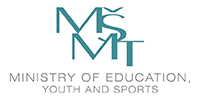In the AMULET project we map the social and economic impact of the developed technologies
Although AMULET is primarily focused on materials research, the technologies being developed - with potential applications ranging from energy to medicine - will have a significant societal and economic impact. This is the focus of one of the project's activities in the area of key enabling technologies, with the aim of mapping the societal context and dimensions of the technologies being developed and to help their research, development and implementation in line with the principles of Open Science, whose fundamental objectives include making scientific processes more transparent, inclusive and democratic and strengthening the value of knowledge and innovation as public goods.
The sociological branch of AMULET is based on theories, concepts and methodologies developed in Science and Technology Studies (STS). The team consists of Tereza Stöckelová, a sociologist of science and technology, who is, among others, Vice-Chair of the UNESCO advisory body The World Commission on the Ethics of Scientific Knowledge and Technology (COMEST), and Michal Trčka, who is an expert in the ethics of science and technology.
Within their task of mapping and critically assessing the social context and dimensions of the technological trajectories of the multi-scale materials being developed, two main activities are underway. First, the team is conducting an ethnographic investigation of the research and innovation practices developed within the AMULET consortium in order to gain detailed insights into research dynamics, including their social and ethical dimensions. Second, it is preparing and will progressively implement four public hearings designed on the basis of public participation and involvement of affected groups and potential technology users.
The possibilities of commercialisation of the developed technologies will also be assessed, which is being implemented by the Prague Technology Centre. Overall, the task aims not only to strengthen the innovative potential of AMULET technologies, but also to seek a fair balance between the public and private benefits of their use.
Tereza Stöckelová, Michal Trčka





















